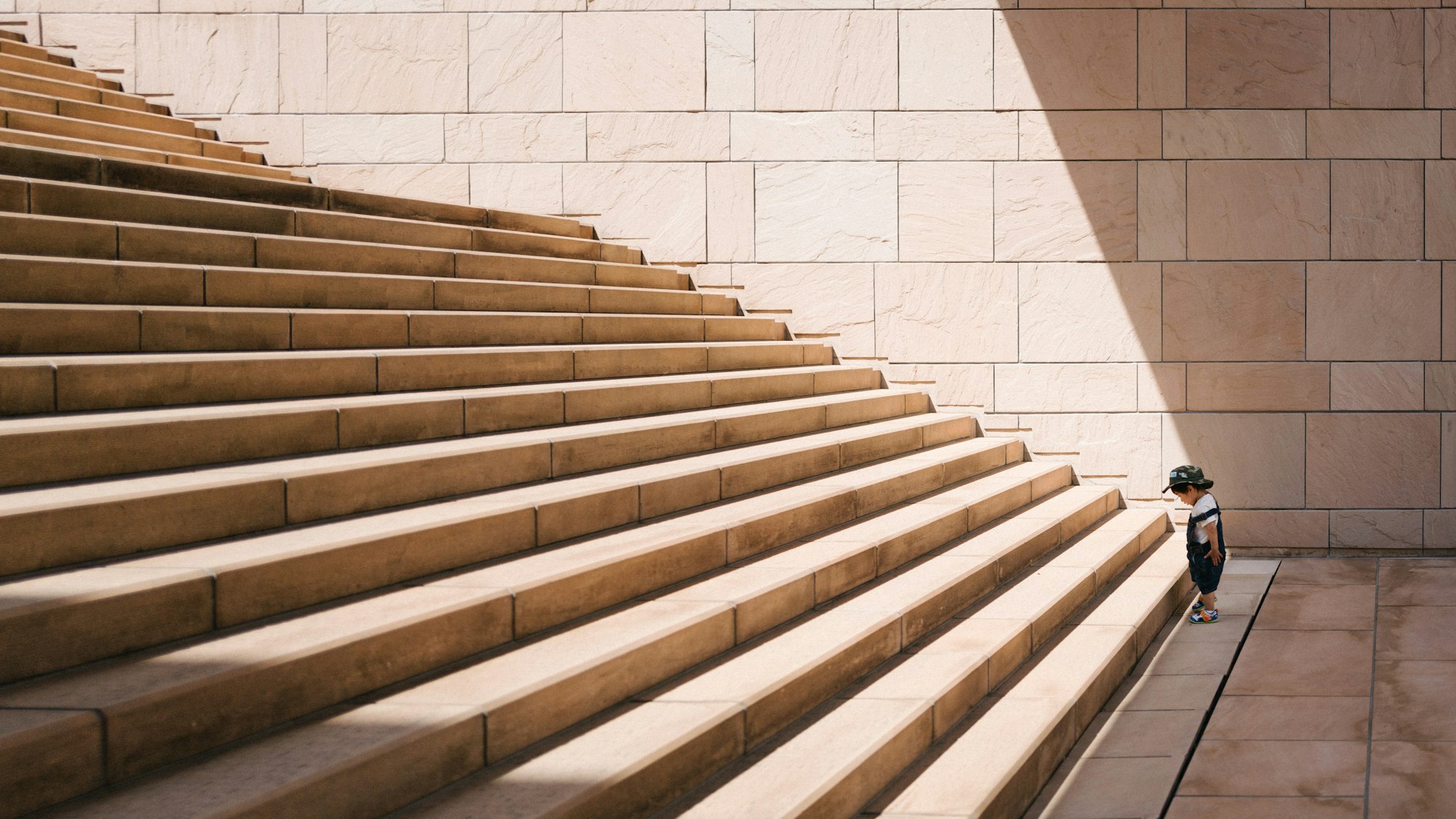It took fifty miles of cycling and the best part of a thousand pounds to reach Senegal. I rode with school friends to raise the money. The proceeds would buy me passage across the Atlantic. The bike ride was from Cambridge to London—more miles than I’d ever pedalled in my life—I didn’t even own a bike. The flight was from London to Dakar, and the journey that awaited—from the moment my feet touched hot dusty tarmac—was the spark that set my heart ablaze with wanderlust. It was also, perhaps, a mistake.
Going to Africa to build schools is a thing. It’s an entire industry designed to pad college resumes and palliate swelling egos. That wasn’t why I went, but you could never tell a naive soldier that he didn’t go to war. Even if he served in the kitchens or remained on base mending tents, he was deployed in service of the empire and his mere presence made its objective complete. Once your feet touched tarmac, you were part of the war effort.
That’s how I found myself, boots down in Senegal, a naive soldier with the best of intentions, bringing seeds of the great enlightenment to The Dark Continent.
It was a much younger and slimmer and fresher-faced version of me, but that boy spent a month living in a tiny town far north of Dakar, deployed each morning to an even tinier village with a name I can't remember or even place on a map.
It was precisely the kind of village that you go to build a school in. One on the edge of the Sahara, with a plump yellow sun that bloomed across the sky like an egg spilled on concrete. Heat tore through the troposphere to spank exposed skin with a playful palm.
The architecture belied the simplicity of the people's concerns. Baked mud and corrugated iron interleaved and roughly composed, providing enough basic protection from things that hailed from above and bit from below.
If Instagram was a thing back then, we would have filled our feeds with enviable exploits.
Instead, we laughed and played with kids, organised activities, taught letters and symbols. We went looking for cool creatures and ran from hornets and jumping spiders. We stayed out till midday marinating gently in sweat till we were forced indoors by the imposing sky-god.
In the afternoons we returned to town. Troublemaker that I was, it wasn’t long before I found myself fabulously engaged in an affair of the eyes with a pretty village girl. She was, of course, precisely the kind of girl you could unknowingly fall into Pocahontas cosplay with. Lithe and vibrant, she had soft, angular eyes, smooth skin and unrelenting cheekbones that could shave rocks into fine sand if the rocks weren’t afraid of marring her face.
She couldn't speak English or French and I didn't speak Wolof so we never actually spoke, but we sat next to each other and went to parties together and shared silent walks in the street after dark. Our friendship hung on delicate smiles and coquettish ingenue.
It was altogether quite lovely and I maintained my innocence because I was barely 17 and it was my first time abroad without family.
Less innocent were the few nights in Gambia where I had shots for the first time with a drink they called vodka which tasted like fire, and that night my friends and I skinny-dipped in the pool after hours.
All of this to say that I had a great time and, naturally, I put the experience on my CV under a heading labelled charity and volunteering.
I had the best of intentions and perhaps knew no better but something recently occurred to me. In the decade that followed not once did I think "boy I hope those kids learned something".
Not once.
Stripping back the stories I told myself, it was a charade. I was being charitable to myself. It was I who went there and lived with them. I built the school and mixed with the locals. I had a great time. I did what I said I would do. Mission accomplished.
The kids were unpaid extras in my coming of age story.
Maybe that’s not completely fair. Maybe as a kid, I’m allowed to cross the sea and revel in a memorable, life-changing experience. But that wasn’t the point, was it. That’s not what it said on the tin. It was supposed to be for them, but really it was for me.
And it reminds me of all the stories of the people who build the schools and the houses and the wells. The people who hand out backpacks and knick-knacks.
It reminds me of a great philanthropic business called Toms which made Americans really happy and made shareholders millions by selling comfy, cool footwear. In doing so they pledged to give pairs of shoes to kids in small villages across South and Central America. And they did what they said they were going to do. Mission accomplished.
Except someone actually followed up a few years later. They went to those towns and looked for those kids, and many of them were shoeless. How could this be, you might ask, when we had just given them shoes?
It turns out nobody really cares for fancy flip-flops when they're hungry. The kids had greater needs and had dispensed with the shoes when those needs became greater than whatever they might gain from cherishing memories of the curly-haired man who descended from the sky to present them with gifts.
I'm not bashing Toms or its founder Blake Mycoskie here. Both are awesome. I'm just pointing out how often our giving expeditions fail to answer the key questions. Are people happy? Do they care? Did they learn? And what did we learn from them?
Education and literacy are incredibly important. I just think it might be good to occasionally be reminded that there may be other things that matter.
We return home to our ivory Towers with homeless people dying of cold in the streets and master's degree holders who can't earn a living wage. And we're all just generally quite miserable. Our most egalitarian societies have the highest rates of depression and many of the most educated countries in the world have the highest rates of suicide.
Then we fly halfway around the world and are shocked to discover that other people might not want our fancy flip flops.
"Don't you want what we have?" Because you see, we have everything figured out.
So no, some people somewhere may not have shoes or street lights, or tampons or literacy. I mention tampons because of a similar incident with another buy-one-give-one business giving tampons to girls in Rwanda on the premise it would increase school attendance. It didn’t. That doesn’t mean the attempt wasn’t worthwhile but it does mean we’re very far from having all the answers.
We are all wonderfully complex beings, regardless of our geography. We tell stories and see patterns. We make friends and build things.
In the West—the heart of the so-called enlightenment—we are currently using our advanced education to solve crises of intimacy. We have specialist therapists trained to deliver perfect hugs, and kids who can only make friends with cartoon avatars.
There is so much we have forgotten—in our race to the top of the hills we've built for ourselves—about what it means to live and make friends and be happy.
These are deeply human things that make life worth living.
So we should share what we have and teach what we know, but remember that we are all just the same people in different places learning different things about life in our time on this earth.
One day I would quite like to see a plane full of African teenagers arrive at Heathrow. They will play with our kids and swim in our pools. They’ll teach us their songs and flirt silently with our locals. Then they will go home and tell friends and neighbours and anyone who will listen about how they crossed the sea to make the world a better place. And humanity would be better for it.
Further Reading











